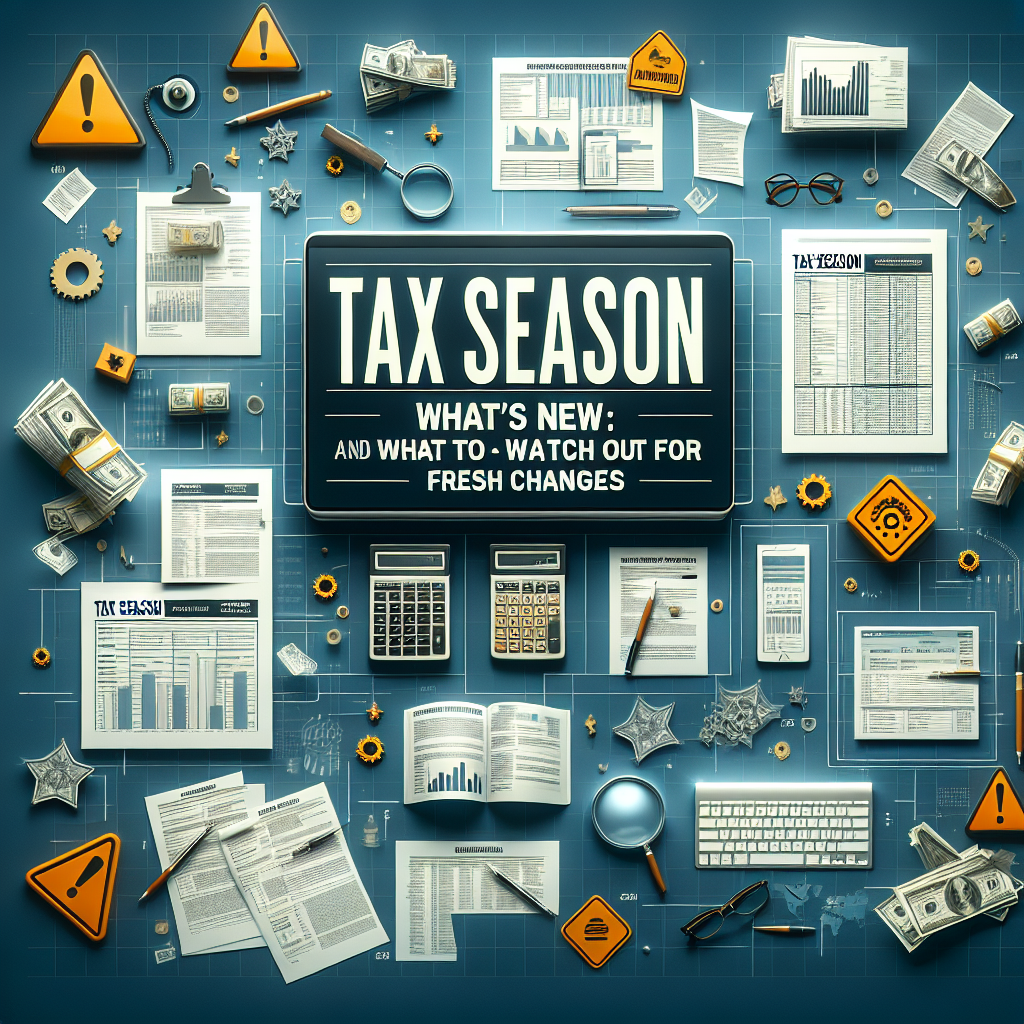Tax Season 2023: What’s New and What to Watch Out For
As the calendar turns and we usher in a new year, many Americans shift their focus to one inevitable reality: tax season. Each year brings changes, and Tax Season 2023 is no exception. Whether you’re a seasoned tax filer or a first-timer, keeping up with what’s new and what to look out for can make this often daunting task a bit smoother. Here’s a comprehensive guide to what you need to know as you prepare your returns this year.
Key Changes in Tax Rules and Regulations
1. Adjustments to Tax Brackets and Rates
Tax brackets typically adjust annually to account for inflation, and 2023 is no different. The IRS has revised tax brackets, which means your earnings could be taxed at different rates than in 2022. Make sure to check the latest tax bracket information to see how it applies to you.
2. Changes in Standard Deductions
The standard deduction amounts have seen a modest increase to reflect inflation. For single filers, the standard deduction has increased to $13,850, up from $12,950 in 2022. Married couples filing jointly can now deduct $27,700, compared to $25,900 in the previous year. These increments could influence whether taxpayers opt for the standard deduction or itemized deductions.
3. Expanded Tax Credits
Several tax credits have been modified or expanded for the 2023 tax year:
-
Child Tax Credit: While the enhanced Child Tax Credit that augmented payments in 2021 has not been extended, the base credit amount remains at $2,000 per qualifying child under 17.
-
Earned Income Tax Credit (EITC): The EITC thresholds have been updated to reflect higher income limits, allowing more individuals and families to qualify for the credit.
- Education Credits: The American Opportunity Credit and Lifetime Learning Credit continue, with adjustments to income phase-out ranges providing potentially higher benefits for education expenses.
New Reporting Requirements
1. Third-Party Payment Platforms
A significant change for 2023 is the tightened reporting requirements for third-party payment platforms like Venmo, PayPal, and Cash App. If you receive more than $600 in business-related payments through these platforms, expect to receive a Form 1099-K. This form not only documents your income but also signals to the IRS that they’re keeping a closer watch on such transactions.
2. Cryptocurrency Transactions
Cryptocurrency remains under the IRS microscope. New guidelines stipulate that any profits from crypto transactions must be reported as income. Additionally, taxpayers are now required to answer a specific question about their involvement in digital currency transactions on the main tax form. Failure to accurately report this information can lead to substantial penalties.
Retirement Contributions and Account Changes
Contribution limits for retirement accounts like 401(k)s and IRAs have been increased. For 2023, the 401(k) contribution limit rises to $22,500, up from $20,500 in 2022, with an additional catch-up contribution limit of $7,500 for those aged 50 and over. Traditional and Roth IRA contribution limits have also increased to $6,500, with a $1,000 catch-up contribution.
Notable Risks and Pitfalls
1. Scams and Fraud
Tax season is a prime time for scammers to target unsuspecting taxpayers. Be wary of unsolicited emails, phone calls, or messages claiming to be from the IRS. The IRS never initiates contact via email or social media to request personal or financial information. Stay vigilant and report any suspicious activities immediately.
2. Late Filing and Payment Penalties
Failing to file or pay your taxes on time can result in hefty penalties and interest charges. If you’re unable to meet the April 18, 2023 deadline, consider filing for an extension. This gives you until October 15, 2023, to submit your return, although any owed taxes are still due by the April deadline.
Final Tips
-
Preparation and Organization: Collect and organize all necessary documents, such as W-2s, 1099s, and receipts early. This can help streamline the filing process and reduce errors.
- Professional Help: If your tax situation is complex or you’re unsure about the new changes, consulting with a tax professional can provide peace of mind and ensure compliance with current tax laws.
As you navigate through Tax Season 2023, being informed and prepared can make all the difference. Understanding the new rules, staying aware of potential pitfalls, and taking proactive steps can help you approach your tax filing with confidence and efficiency.


